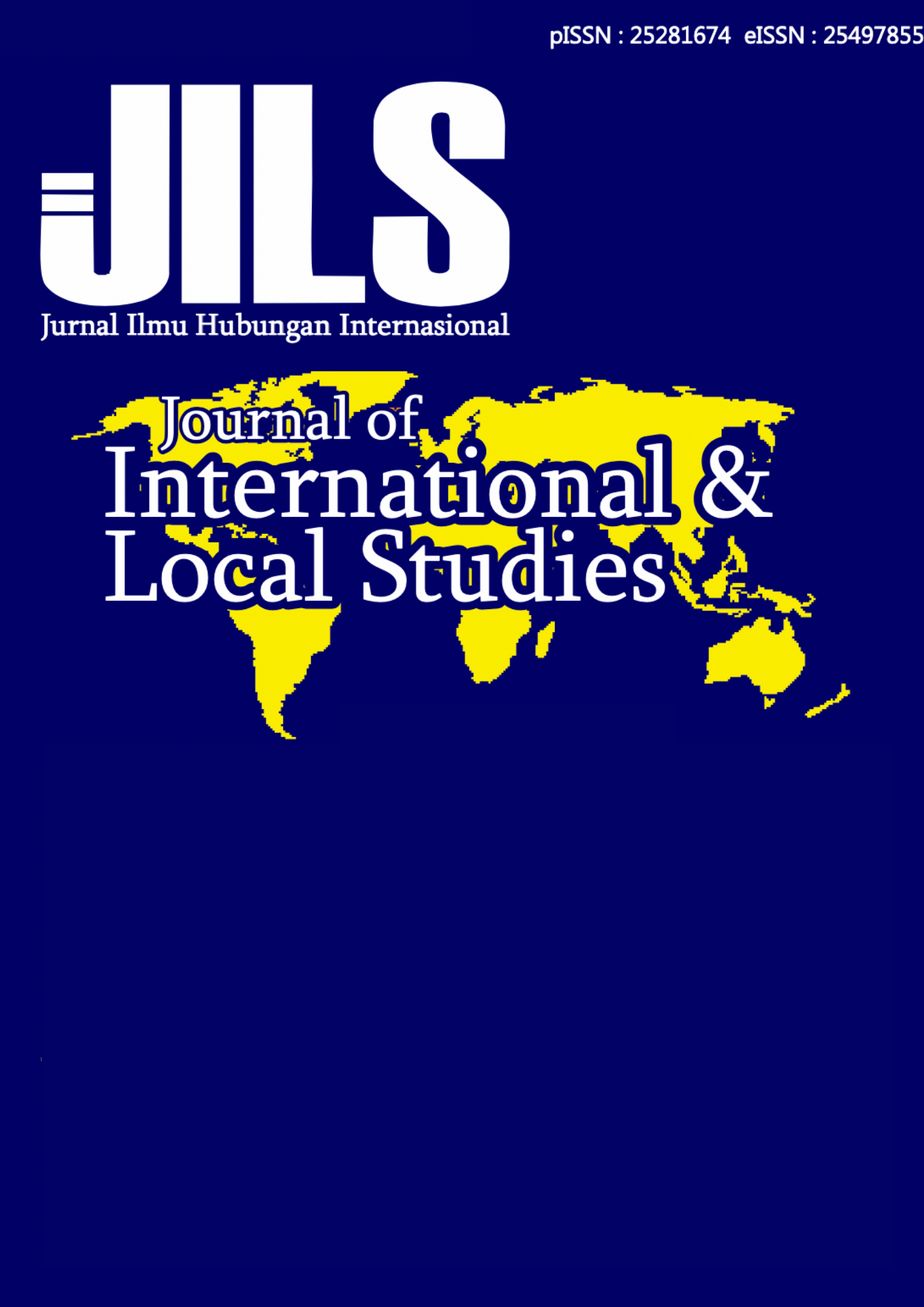Deterministik Realisme: Analisa Potensi Aneksasi Taiwan oleh Tiongkok
DOI:
https://doi.org/10.56326/jils.v8i2.4140Keywords:
deterministik realisme, aneksasi, keseimbangan kekuatan, Taiwan, TiongkokAbstract
Situasi antara Tiongkok dan Taiwan telah lama diwarnai oleh ketegangan dan potensi konflik militer. Tiongkok menegaskan klaim kedaulatannya atas pulau Taiwan dan tidak segan mengancam tindakan militer jika Taiwan memproklamasikan kemerdekaan secara resmi. Penelitian ini bertujuan untuk menganalisis kemungkinan aneksasi Taiwan oleh Tiongkok melalui sudut pandang deterministik realisme, sebuah perspektif yang menekankan pada peran kekuatan militer dalam menjaga keseimbangan kekuatan dan mencegah konflik terbuka. Dengan mengevaluasi faktor-faktor seperti kapabilitas militer, aliansi strategis, dan kepentingan nasional, penelitian ini berupaya memberikan wawasan mendalam tentang potensi konflik di Selat Taiwan dan implikasinya bagi dinamika kekuatan di kawasan tersebut.
References
Blanchard, B. (2019). China fears Taiwan’s democracy the most, island’s president says in election pitch. Reuters. https://www.reuters.com/article/idUSKBN1YM1M2/
Bush, R. C. (2021). Taiwan’s democracy and the China challenge. Brookings.
Cohen, E. A., Tellis, A. J., Bially, J. L., Layne, C., McPherson, M., & Sollinger, J. M. (2001). Measuring National Power in the Postindustrial Age. In Foreign Affairs (Vol. 80, Issue 5). https://doi.org/10.2307/20050283
Cordesman, A. H., & Kleiber, M. (2007, April 9). Chinese Military Modernization. Center for Strategic & International Studies. https://www.csis.org/analysis/chinese-military-modernization
Defense, U. S. S. of. (2022). Military and Security Developments Involving the Poeple’s Republic of China.
Doshi, R. (2021). The Long Game: China’s Grand Strategy to Displace American Order. Broookings. https://www.brookings.edu/articles/the-long-game-chinas-grand-strategy-to-displace-american-order/
Goldman, E. O., & Mahnken, T. G. (2004). Information Revolution in Military Affairs in Asia. In Palgrave Macmillan (Vol. 5, Issue 1). https://link.springer.com/book/10.1057/9781403980441
Harding, R., & Sevastopulo, D. (2021). US pushes Japan to back Taiwan at Biden-Suga summit. Financial Times.
Hartley, K. (2007). Defense economics: Achievements and challenges. The Economics of Peace and Security Journal, 2(1). https://doi.org/10.15355/2.1.45
Ikenberry, G. J., & Mearsheimer, J. J. (2001). The Tragedy of Great Power Politics. Foreign Affairs, 80(6), 173. https://doi.org/10.2307/20050342
J.M. (2014). Why China and Taiwan are divided. The Economist. https://www.economist.com/the-economist-explains/2014/08/25/why-china-and-taiwan-are-divided
Jervis, R. (1979). Deterrence Theory Revisited. World Politics, 31(2), 289–324. https://doi.org/10.2307/2009945
Kastner, S. L. (2016). Is the Taiwan Strait Still a Flash Point? Rethinking the Prospects for Armed Conflict Between China and Taiwan. International Security, 40(3), 54–92. https://doi.org/10.1162/ISEC
Liff, A. P. (2021). Has Japan’s policy toward the Taiwan Strait changed? Brookings. https://www.brookings.edu/articles/has-japans-policy-toward-the-taiwan-strait-changed/
Panda, J. P. (2023). Taiwan: Tokyo’s New Ally? Institute for Security & Development Policy. https://www.isdp.se/publication/taiwan-tokyos-new-ally/
Power, G. F. (2024). Comparison of China and Taiwan Military Strengths (2024). https://www.globalfirepower.com/countries-comparison-detail.php?country1=china&country2=taiwan
Rigger, S., Hickey, D. V, & Chow, P. (2017). Prospects for Security and Economic Ties.
Sacks, D., & Stares, P. B. (n.d.). Cross-Strait Conflict and the Risk of Horizontal Escalation. Council on Foriegn Relations.
Scobell, A. (2005). Strategic Culture and China: IR Theory Versus the Fortune Cookie? Strategic Insights, V. 6, Issue 10 (October 2005), IV(10).
SIPRI. (2023). States invest in nuclear arsenals as geopolitical relations deteriorate. Stockholm International Peace Research Institue. https://www.sipri.org/media/press-release/2023/states-invest-nuclear-arsenals-geopolitical-relations-deteriorate-new-sipri-yearbook-out-now
Swaine, M. D. (2015). Chinese Views and Commentary on the One Belt, One Road Initiative. China Leadership Monitor, 47(2), 1–24. https://www.hoover.org/sites/default/files/research/docs/clm47ms.pdf
Taiwan Relation Act. (1979). Taiwan Relation Act. https://www.ait.org.tw/taiwan-relations-act-public-law-96-8-22-u-s-c-3301-et-seq/
Tian, Y. L., & Blanchard, B. (2023). China proffers “peaceful reunification”, Taiwan says respect our democracy. REUTERS. https://www.reuters.com/world/china/china-says-should-advance-peaceful-reunification-with-taiwan-2023-03-05/
Waltz, K. N., & Mills, D. (1979). Theory of International Politics.
Yoshihara, T., & Holmes, J. R. (2012, April). Asymmetric Warfare, American Style. U.S. Naval Institute. https://www.usni.org/magazines/proceedings/2012/april/asymmetric-warfare-american-style
Zagare, F. C., & Kilgour, D. M. (2000). Perfect Deterrence. In Cambridge University Press. Cambridge University Press. https://doi.org/10.1017/CBO9780511491788
Downloads
Published
How to Cite
Issue
Section
License
Copyright (c) 2024 Muhammad Arrafi Rizcy Deanto, Nur Isdah Idris

This work is licensed under a Creative Commons Attribution 4.0 International License.


